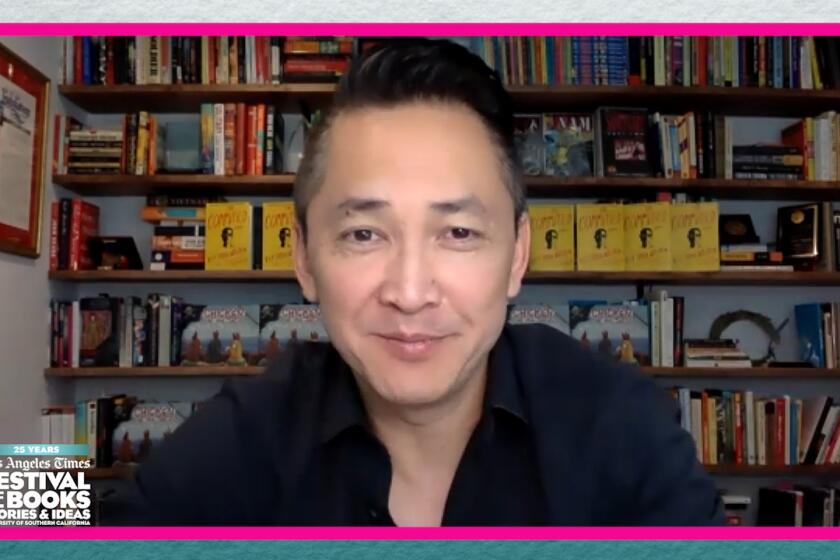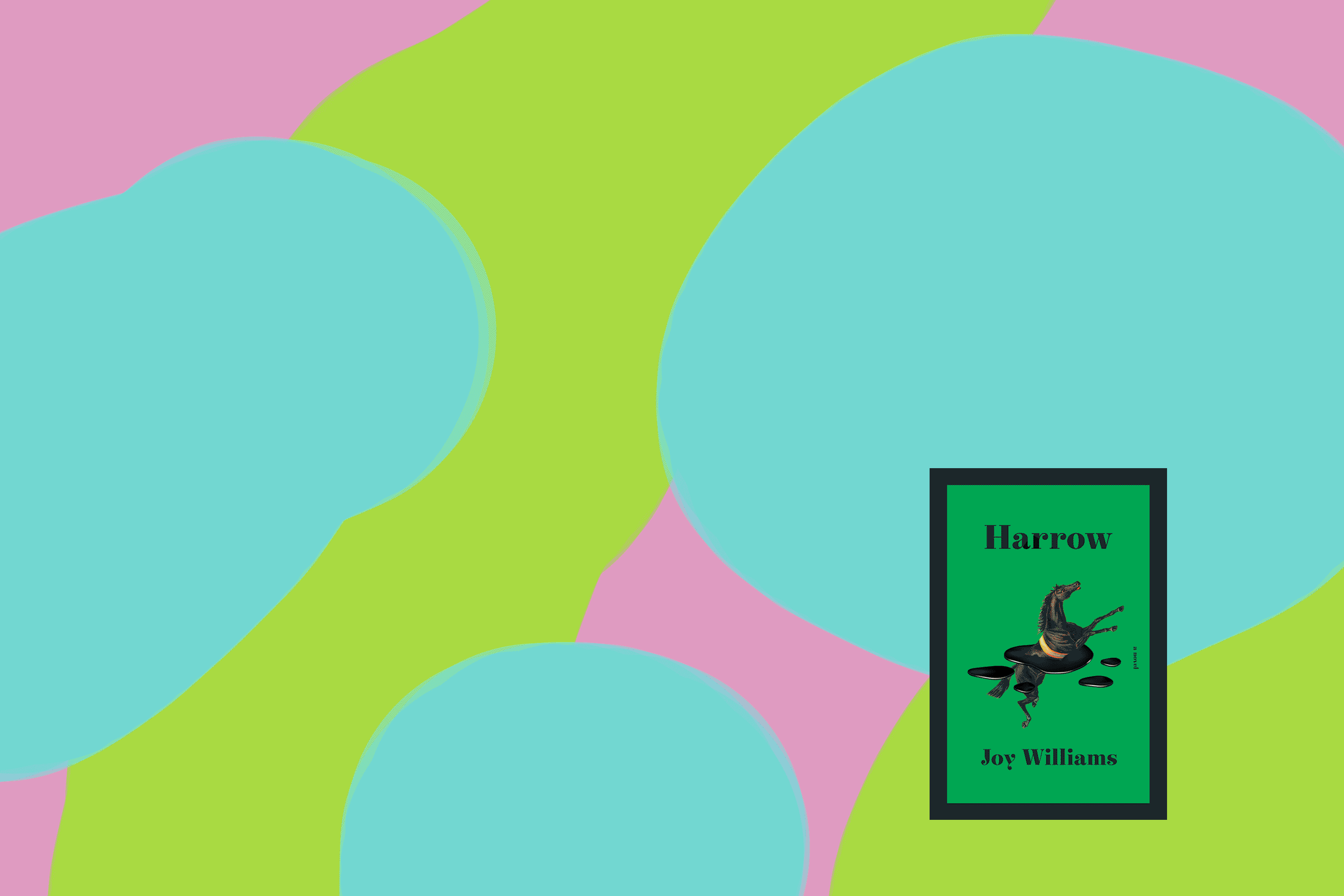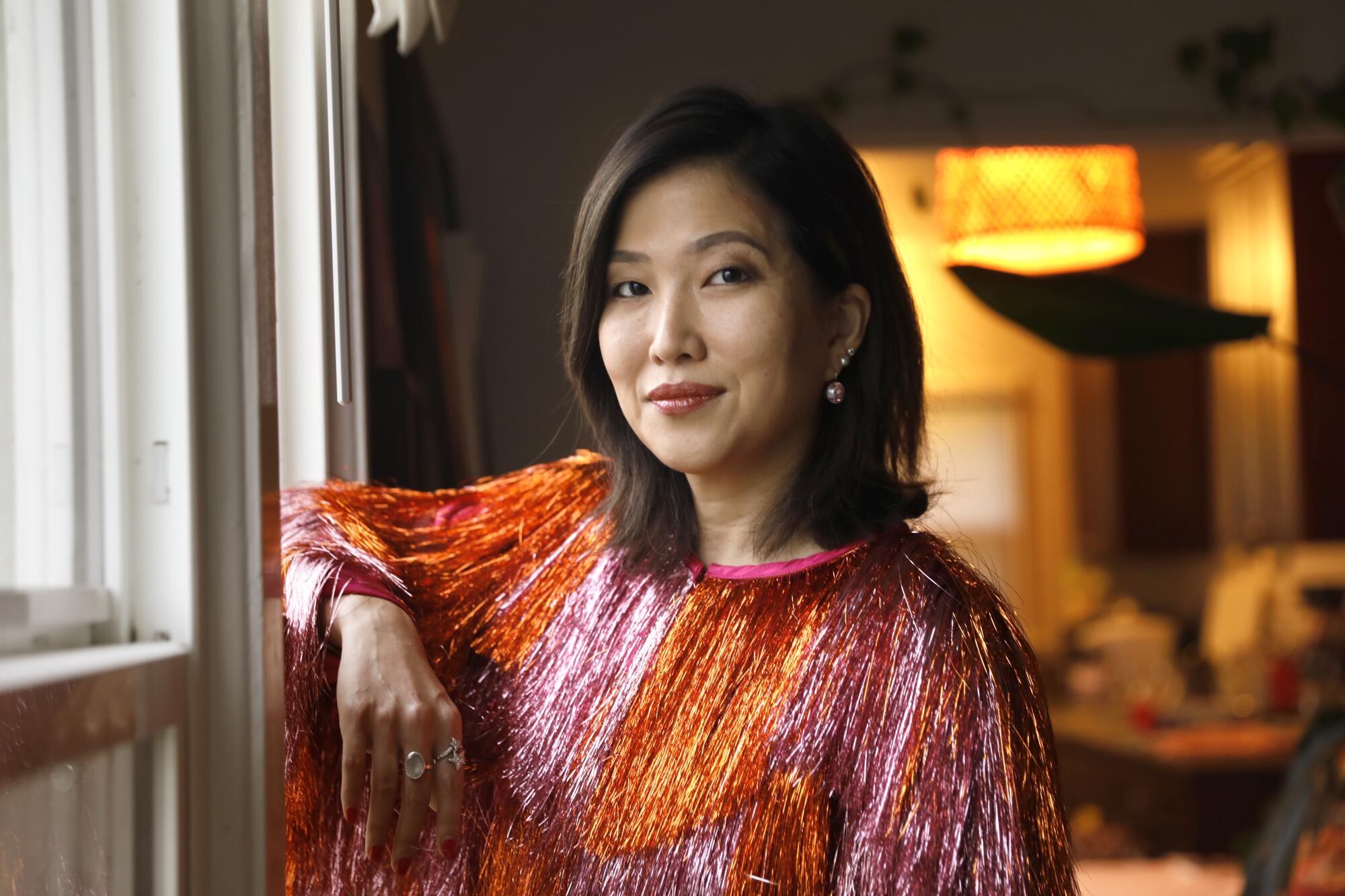
On the Shelf
'Fiona and Jane'
By Jean Chen Ho
Viking: 288 pages, $26
If you buy books linked on our site, The Times may earn a commission from Bookshop.org, whose fees support independent bookstores.
I wasn’t sure Jean Chen Ho would make it to our interview.
Late on a Wednesday night, less than 12 hours before our Zoom appointment to discuss her first book, “Fiona and Jane,” Ho had tweeted from Jumbo’s Clown Room on Hollywood Boulevard that she was “wearing a sensible cable knit sweater to a strip club.”
I was relieved when Ho beamed in from her Los Feliz home only three minutes late — “a little hungover,” she confessed — and in the same snow-white sweater she’d fallen asleep in early that morning. “I woke up, I had some breakfast, I made myself a coffee,” she said. “I’m still wearing eyeliner from last night. I put on a little lipstick so I look more alive.”
Ho is a nearly lifelong Angeleno. Though raised in Cerritos, she holds vivid memories of Taiwan, where she was born and lived until she was 8. After her family immigrated to Los Angeles, Ho found a home among its robust Asian American communities. “All my friends growing up were Korean, Indian or Filipino,” she recalled.
When she’s not home, Ho told me, she’s out with friends or sifting through the library archives at USC, where she is a doctoral candidate in creative writing and literature. Her dissertation doubles as her literary debut: “Fiona and Jane,” a collection of linked short stories, spans 30 years of friendship between two Taiwanese American women from L.A.
The title characters are complementary types: Fiona is an outgoing serial monogamist and a law-school dropout, Jane an insecure budding author who struggles with her bisexuality. The stories alternate between Jane’s first-person perspective and a third-person narrator, but each focuses on one of the two protagonists. It’s easy to get wrapped up in the dichotomy — to wonder whether you’re a Fiona or a Jane.
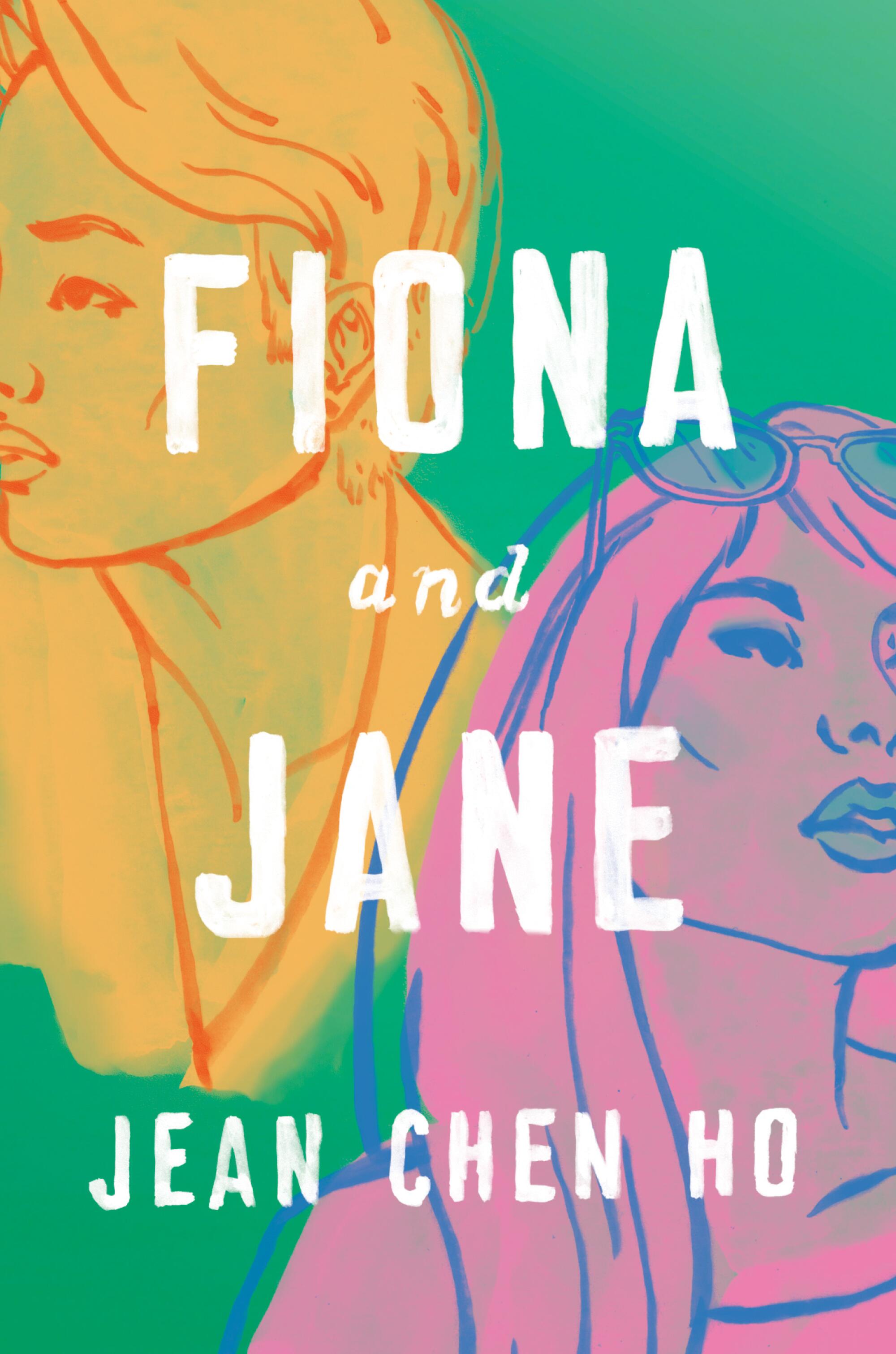
Ho, for her part, says she grafted her experiences onto both characters. “I had a similar trajectory geographically as Fiona,” she said, “and I think I identify with Jane in that she’s kind of an underachiever. She’s, like, drifting about in her 20s and part of her 30s.”
At 41, Ho acknowledges she’s “not a young person” publishing her debut. “I’ve lived a lot of my life,” she said. The book reflects it, roving through Taiwanese night markets; Korean sooljips in Garden Grove; and Canal Street in New York City, where Ho lived for three years, working for an arts nonprofit before seasonal depression got the better of her and she decided, “I gotta go.”
Ho had begun a novel in New York, and when she returned to Los Angeles, she began taking writing classes while working a day job as development director at the AAPI nonprofit Visual Communications. Turning 30, she said, “forced me to really confront” the decision to write full time. She earned an MFA at the University of Nevada, Las Vegas, where she drafted the earliest of the stories in “Fiona and Jane.”
Steph Cha shares a meal and some notes on performing identity with the “Interior Chinatown” author.
After that, it was back to Cerritos. “Luckily, my parents didn’t make me pay rent,” she joked. Living in her childhood home at age 34 was “nurturing but also strange.” That winter, Ho received a phone call from the writer and USC professor Aimee Bender, welcoming her to the doctoral program.
It was Ho’s “ease of voice” that compelled her, Bender recalled. “You feel like you’re listening to a friend speak to you,” she said. “She talks about layers and complexity, but with such a light hand.”
At USC, Ho has studied under the Pulitzer Prize-winning novelist Viet Thanh Nguyen, who described her as “refreshingly un-self-conscious,” down to her memorable thrift-store outfits.
“Jean has always maintained this independent streak in just being herself in front of her fellow students and faculty members,” Nguyen told me. “I think it’s pretty hard to do, to have that kind of un-self-consciousness. It really suits her as a writer as well, because I think ‘Fiona and Jane’ is a book about vulnerability, but it’s also a vulnerable book in and of itself for a writer to write.”
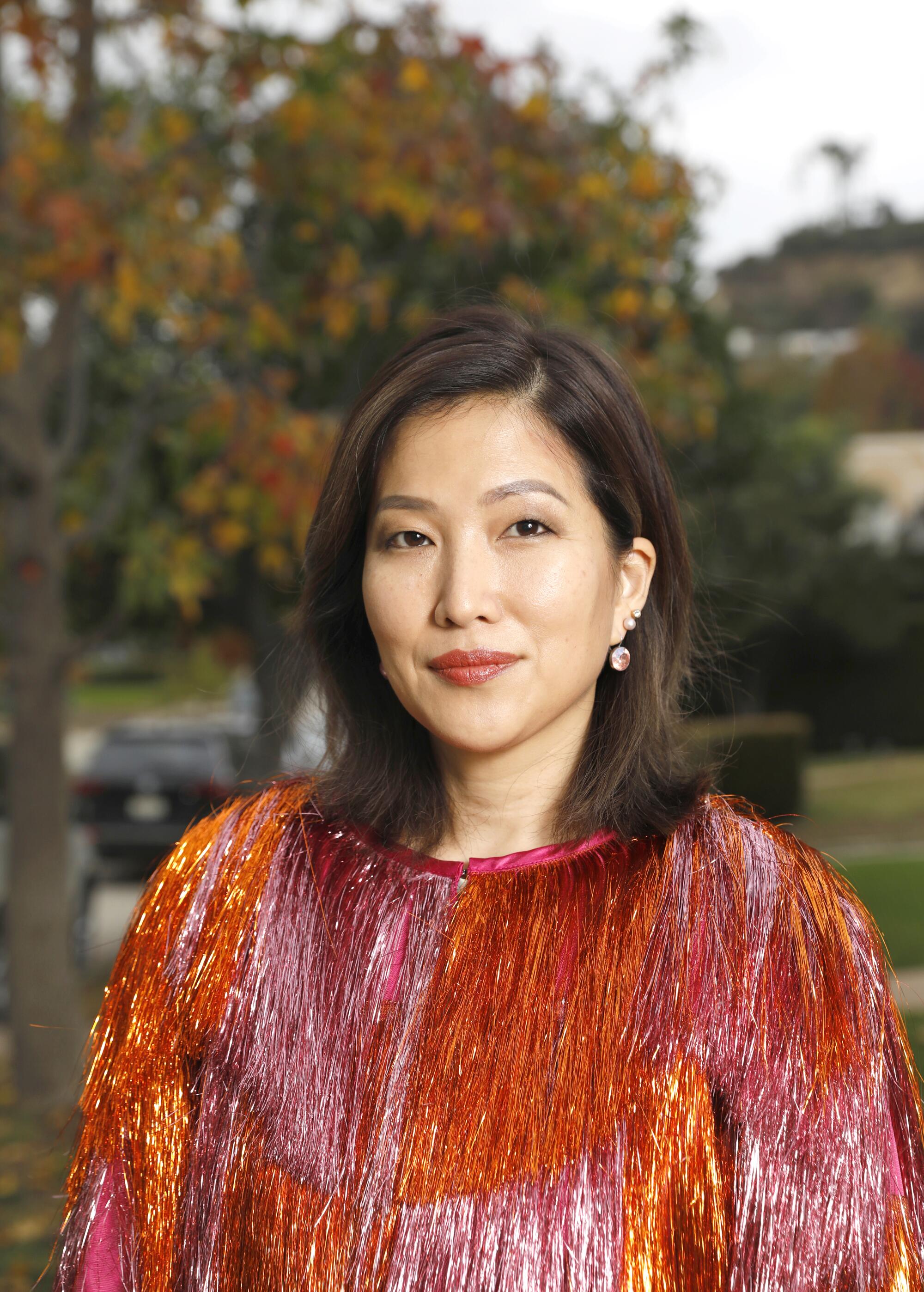
Vulnerability seems to come easily to Ho. Minutes into our conversation, she told me one of her best friends had died by suicide a few months ago. (Ho wrote a piece for The Times’ Image magazine in October on processing her grief.)
“She was also Taiwanese American, and in some ways, it was a different sort of intimacy,” Ho said, her voice catching. “Like going to her house — when I was a kid, I felt very much like it was my house, it was like her parents were my second parents. When you have a long friendship like that, I assumed that we would be friends till we’re 80 or 90, if we were lucky enough to live that long.”
“Fiona and Jane” is a refreshingly honest treatment of long-term friendships — particularly their inexorable ebb and flow. Story by story, the book captures the way friendships negotiate their own boundaries, at times dissolving unexpectedly and at others flourishing into something more, even if just fleetingly.
While Ho admits her adult friendships flavor the book, she is hesitant to draw any direct parallels. She did say she felt compelled to write about friendship between Asian American women, partly as the result of her own upbringing in a predominantly Asian L.A. suburb — the kind of place that complicates simplistic media definitions of diversity as “an element of difference to the white majority.”
After a panel for the Festival of Books, Viet Thanh Nguyen discusses his forthcoming novel ‘The Committed,’ the sequel to ‘The Sympathizer.’
I asked her what it means to have a best friend. Can you only have one? Ho was quick to disagree. “’Best friend’ is sort of like a category or genre of person,” she told me. In her life, one of these “genres” is her close-knit circle of Asian American women writers in L.A., including the novelist Jade Chang.
Chang described Ho’s writing to me as “just immediately emotional” (and her fashion sense as “chaotic and absolutely perfect”). “Someone like Tracy Chapman or Adele could sing about French fries and I’d weep because their voices are so open and connected,” Chang added. “Jean’s writing is like that.”
“Fiona and Jane” grapples with somber themes, including depression and abuse, as well as the complexities of interracial relationships and queerness among Asian Americans, but without any strain. Sexuality is represented as fluid and unabashed, though the consequences of its suppression result in tragedy and guilt.
“I feel like everyone, or most people, are bi, or would be open to what we would label as bisexual erotic pleasure,” Ho said. “Sometimes characters reveal themselves to you.”
It might initially seem surprising that one of the most promising debut writers of 2022 spent the wee hours of the night before an interview hanging out with friends in a strip club. But Ho is no poet in a garret. Friendship is not only her core theme; it’s what binds her to the writing life.
Lilliam Rivera, another of Ho’s L.A. writer friends, fondly recalls Ho’s excitement over Rivera’s novel “Dealing in Dreams.” Ho helped her run the launch party, and for a recent birthday, she gave Rivera a monstera plant. “It’s bloomed so big,” Rivera said. “To me, this is Jean’s growth and pursuit of new things.”
That might seem to stretch the metaphor a bit. But consider that when Ho began writing her book five years ago, she bought herself a bromeliad and a travelers palm. “I named one Fiona and one Jane just as a joke and to make me feel good about this long project of writing a book,” she said. Now that the book is out, only the travelers palm sits behind her in the Zoom frame. “Sadly, Fiona died. So only Jane is left, but she’s thriving.”
Leave it to Ho, a debut author grieving a lifelong friend, to evoke the bittersweet meaning in something as simple as an unlucky houseplant.
We asked four critics to name their five favorite books of the year. None of them overlapped. Here are their 20 candidates for best of the year
Venkataramanan is an MPhil candidate in English literature at the University of Cambridge, where she is a Gates Cambridge Scholar.
More to Read
Sign up for our Book Club newsletter
Get the latest news, events and more from the Los Angeles Times Book Club, and help us get L.A. reading and talking.
You may occasionally receive promotional content from the Los Angeles Times.
